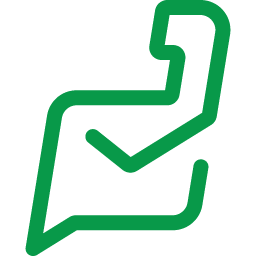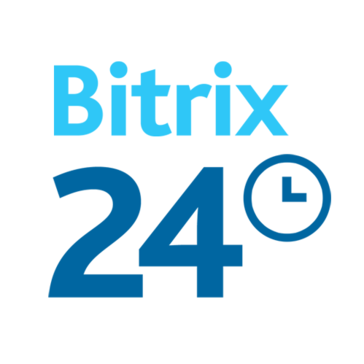Customer service is a crucial aspect of any business strategy. Customer service software, a suite of tools designed to manage and optimize customer support interactions, is an important addition to any business’s tech stack. These platforms help companies streamline their communication channels, automate tasks, and provide timely and personalized support across various channels such as email, live chat, and social media.
This article delves into the best customer service software for 2024, providing an in-depth comparison of their unique selling points, features, benefits, and user testimonials to help you choose the ideal solution for your customer service needs.
Based on our analysis of more than 22 of the leading software solutions in the space, here is our breakdown of the six best customer service software of 2024:

LiveAgent: Best overall
Overall Score
4.7/5
Pricing
5/5
General features and interface
5/5
Core features
4.3/5
Advanced features
4.7/5
Integration and compatibility
4.5/5
UX
4.8/5
Pros
- Gamification features
- Built-in call center
- Customizable ticketing system
- Supports over 200 integration
Cons
- Limited integration with non-CRM tools
- Additional add-on costs for premium features
Why we chose LiveAgent
LiveAgent ticks all of the boxes. By consolidating email, live chat, social media, and phone support into a unified dashboard, LiveAgent enables businesses to manage customer interactions with unprecedented efficiency.
In addition to offering all the basic and intermediate features a customer service solution could need, LiveAgent goes a step further with its Universal Inbox. This innovative feature streamlines all communications into a single, manageable interface. This is complemented by the platform’s real-time typing view, which gives you a proactive edge by allowing you to see customer messages as they’re being composed.
The software’s built-in call center functionality further enhances its versatility. With features such as IVR, unlimited call recordings, and callback options, LiveAgent provides a full toolkit for comprehensive customer service operations.
Cost-effectiveness is another key advantage of LiveAgent. With plans starting at just $15 per agent per month and a 30-day free trial, it offers significant value compared to pricier alternatives like Zendesk. This accessibility doesn’t come at the expense of quality, as evidenced by the platform’s highly regarded reporting and analytics tools. Users consistently praise these features for their depth and usability.

Zendesk: Best for enterprises
Overall Score
4/5
Pricing
2/5
General features and interface
4.1/5
Core features
4.8/5
Advanced features
5/5
Integration and compatibility
3.3/5
UX
4.2/5
Pros
- Omnichannel Support Integration
- Automated ticket routing
- AI-powered chatbots
- Analytics and reporting including customer satisfaction scores, agent performance, key service indicators
- Knowledge base is highly customizable
Cons
- High cost for advanced features
- Steep learning curve for full utilization
Why we chose Zendesk
When you’re running a large enterprise, you need customer service software that can keep up. Zendesk fits the bill, particularly excelling in its reporting capabilities. With Zendesk Explore, you get access to both pre-built and custom dashboards, allowing you to dive deep into metrics like ticket volume and response times. This level of customization is crucial when you need to tailor reports to your specific business needs.
Comparing Zendesk to HubSpot Service Hub, you’ll find Zendesk offers more in terms of scalability and feature depth. While HubSpot is known for its user-friendly interface and CRM integration, it doesn’t quite match up when it comes to advanced automation and AI features. Zendesk provides sophisticated AI tools, like Answer Bot and AI-driven ticket routing, which can significantly streamline your workflows and boost agent productivity.
Zendesk’s Suite Enterprise plan includes features like advanced encryption and unlimited departments. In contrast, HubSpot’s Enterprise plan starts at $1,200 per month for ten users, which might strain some budgets. This pricing structure makes Zendesk a more scalable option, especially if you’re looking to grow your customer service team.
Keep in mind that while Zendesk offers powerful features, it may require more setup time and training compared to simpler solutions.

Hubspot Service Hub: Best for sales and marketing integration
Overall Score
4.3/5
Pricing
3.3/5
General features and interface
4.1/5
Core features
4.1/5
Advanced features
4.8/5
Integration and compatibility
5/5
UX
4.3/5
Pros
- Free version
- Seamless CRM integration
- Automates ticket assignment, email notifications, and follow-ups
- User-friendly with extensive training resources
- Built-in knowledge base
- Conversational ticketing
Cons
- High cost for paid tiers
- Limited customization options
Why we chose HubSpot Service Hub
When you’re looking to streamline your sales and marketing operations alongside customer service, HubSpot Service Hub does it all. Its tight integration with HubSpot’s CRM is a game-changer, allowing you to unify all customer interactions and data in one place.
Unlike Zendesk, which primarily focuses on support, HubSpot Service Hub gives you a more balanced platform that bridges the gap between service and marketing. You’ll find this particularly useful if you’re aiming to track customer interactions from their first contact all the way through to post-sale support. This end-to-end visibility can be crucial for optimizing your sales funnel and boosting customer retention.
You can start with the basic plan at $20 per seat per month. As your needs expand, you can move up to the Professional plan at $100 per seat per month. This tiered approach means you’ll have access to more advanced features like a knowledge base, customer portals, and in-depth analytics as your business scales.
However, it’s worth noting that while HubSpot excels in integration and marketing capabilities, it may not offer the same depth of customer service features as some specialized support platforms. You’ll need to weigh whether the benefits of integration outweigh any potential limitations in advanced support tools.

Zoho Desk: Best for customization
Overall Score
4.4/5
Pricing
4.6/5
General features and interface
3.9/5
Core features
4.4/5
Advanced features
5/5
Integration and compatibility
5/5
UX
3.8/5
Pros
- Affordable pricing
- Customizable and scalable
- Integrated AI Assistant (Zia)
- Natively integrates with the rest of Zoho’s suite
Cons
- Limited customization in free plan
- Complex setup for advanced features
Why we chose Zoho Desk
When you’re looking for a customer support solution that adapts to your unique needs, Zoho Desk immediately comes to mind. It offers a level of customization that surpasses competitors like Freshdesk, allowing you to shape workflows, ticket forms, and customer portals to your exact specifications.
One feature you will find particularly valuable is the multi-brand help center capability. This allows you to set up distinct knowledge bases for each brand you manage, providing a more personalized experience for your customers. It’s especially handy if you’re juggling multiple product lines or services.
With Zoho Desk, you’re not getting a one-size-fits-all solution. You can create custom ticket views, design unique fields, and automate complex workflows using Blueprints. However, this extensive customization can come with a steeper learning curve. You might need to invest significant time in setting up and optimizing the system to fully leverage its capabilities.
The platform has also brought AI into the mix with Zia, an assistant that can help automate ticket classification and sentiment analysis. If you’re already using other Zoho applications like their CRM, you’ll appreciate how seamlessly Zoho Desk integrates, creating a smooth flow of data across your systems.
Additionally, Zoho Desk offers some of the most competitive rates on the market. The Express plan starts at $7 per user/month and includes key features like social media integration and workflow automation, making it an attractive option for small businesses. However, as with many highly customizable platforms, you might find that accessing more advanced features requires upgrading to higher-tier plans, which could impact your budget considerations.

Bitrix24: Best for team collaboration
Overall Score
4.2/5
Pricing
4.4/5
General features and interface
4.3/5
Core features
4.4/5
Advanced features
4.4/5
Integration and compatibility
4.2/5
UX
4.4/5
Pros
- Paid plans start at $49 per month for up to 5 user
- Advanced features set with bottom tier paid plan
- Combines CRM, project management, and communication tools in one platform
- Advanced automation and AI
- Comprehensive reporting and analytics
Cons
- Advanced learning curve for customization and full functionality
- Customer support issues reported by multiple users
Why we chose Bitrix24
If you’re looking for a versatile, cost-effective solution to enhance your team’s collaboration, Bitrix24 is certainly worth exploring.
It’s a powerhouse for team collaboration, offering you a comprehensive suite of tools that go beyond what many competitors provide. Unlike platforms like HubSpot Service Hub that primarily focus on customer service and sales, Bitrix24 gives you a versatile toolkit for managing various aspects of your business operations.
With Bitrix24, you’ll find everything from task and project management to real-time chat, video conferencing, and document collaboration. The platform also offers workflow automation capabilities, which can help you reduce the administrative load on your team.
Another of Bitrix24’s strengths lies in its visual project management tools. You can use Kanban boards and Gantt charts to get a clear picture of project timelines and progress. Bitrix24 also integrates telephony into its platform, allowing you to manage all your communications without the need for additional software. Every interaction is logged and easily accessible, which can be crucial for maintaining a comprehensive view of your operations.
Finally, the free plan supports unlimited users, as opposed to Zoho’s free offering which only allows up to three users per team.

Freshdesk: Best for SMBs
Overall Score
4.4/5
Pricing
4.2/5
General features and interface
4.5/5
Core features
4.4/5
Advanced features
4/5
Integration and compatibility
5/5
UX
4.3/5
Pros
- Freddy AI integration
- Centralized ticketing system
- Shared inboxes and internal notes
- Extensive customization of workflows, ticket forms, and automation rules
Cons
- Limited integration with non-Freshworks products
- Advanced functionalities like the call feature come as add-ons
Why we chose FreshDesk
Freshdesk might be just what you’re looking for if you’re running a small or medium-sized business (SMB) and need a customer service solution that won’t break the bank or require a Ph.D. to operate.
One of Freshdesk’s biggest selling points is its pricing structure. You can start with a free plan that supports up to 10 agents, which is perfect if you’re just getting your feet wet. When you’re ready to scale up, paid plans kick off at a wallet-friendly $15 per agent per month. Compared to pricier options like Zendesk, this can make a big difference to your bottom line.
But Freshdesk isn’t just about being cheap—it’s also designed with ease of use in mind. The interface is intuitive, making it simple to onboard new team members and manage daily tasks. This is crucial if you don’t have a dedicated IT team to handle complex setups.
Freshdesk brings together multiple communication channels—email, phone, chat, social media—into one platform. This means you can manage all customer interactions from a single dashboard, saving you time and headaches. The centralized ticketing system and Freddy AI for automated responses can significantly boost your team’s efficiency.
Unlike some competitors like Zoho Desk, Freshdesk offers a comprehensive multilingual knowledge base and self-service portals.
Find your new customer service software
What is customer service software?
Customer service software is any tool that helps a business manage inbound and outbound communications across multiple channels, efficiently deliver service, and resolve issues. There are hundreds of different solutions to choose from that vary by scale, industry use, platform type, compatibility, and features. This buyer’s guide will help you isolate the best customer service software for your business by defining the market and comparing four leading products.
If financial viability is a company’s “bottom line,” customer retention is the bedrock: a foundation that supports the growth and success of the entire organization. And yet, the average company loses 45 to 50 percent of its customers every five years.1 The truth is, it can be difficult to please every customer every time. That’s why companies need a reliable, repeatable system for handling their customer interactions.
What are the uses and types of customer service software?
When you compare Customer Service software, it’s important to remember that there is no single, all-encompassing definition of customer service software. Some systems are fully integrated product suites, meaning they combine record-keeping and service management with computer-telephony integration (CTI) for end-to-end functionality. Others focus more exclusively on CTI and the automation of inbound/outbound communication channels. Still, other systems are tailored to customer support and use ticketing workflows to resolve product and service issues.
The customer service software market used to be dominated by a select few on-premise systems, such as Avaya and Cisco. These systems certainly have their merits and are still being used by many established companies, but innovations in cloud technology have brought a diverse wave of new products onto the market. Choosing the best software for your contact center is no longer an obvious choice between two or three incumbent systems.
Common features and benefits of customer service software
While there is considerable deviation between products (depending on use intent and scope) most customer service management software contains some or all of the following common features:
Call Routing
A customer service system uses a variety of criteria to make sure calls get sent to the right representative. At the most basic level, calls are routed to the appropriate department based on what the customer is calling about. More sophisticated systems with automatic call distributors (ACD) can route calls based on which agents have been waiting the longest, taken the least calls for the day, or have the highest level of appropriate skill. Some solutions even let administrators establish custom rules for call routing based on more nuanced or industry-specific criteria (service level, account status, etc.).
Auto-Attendant
An auto-attendant serves as a gatekeeper between initial dial-in and contact with a live representative. Most auto-attendants incorporate interactive voice response (IVR) technology, which lets the computer deliver dynamic responses and options based on voice commands or keypad entries. Some auto attendants merely function as secretaries directing calls to remote or in-house agents through an IP private branch exchange (PBX); others can actually answer questions and fulfill requests (such as account balance or device activation).
Reporting/Analytics
Customer service software can help coaches, managers, and department heads guide their teams and make better decisions and by giving them access to data on call metrics (like average handle time and hold time), issue resolution, and customer satisfaction ratings. Most systems also incorporate call recording and archival to allow easy retrospective research and compliance management.
Mobile Access
Some of the more modern customer service solutions offer mobile clients so users can access deskphone features from their mobile device. Mobile and remote service reps can make, receive, and transfer calls, access directories, and even use internal collaboration tools using a cellular or wifi network.
Case Management
Referred to interchangeably as “ticketing,” this feature is an important inclusion in customer service software for support teams. It allows agents to track and resolve product and service issues through multiple channels, such as email, instant messaging, phone, and social media. Some of the best customer service software can even auto-generate tickets by transcribing voice messages or parsing data from customer correspondence.
Because of the features customer service management software offers, companies have the power to manage, track and share its customer information among employees and customers themselves. Here are a few main benefits the best customer service software platforms can provide your organization:
- Manage all customer communication through one platform
- Quantify and measure customer service performance
- View reports and dashboards on customer service activities
- Track and prioritize customer support request tickets
- Utilize live chat for optimal customer support
- Monitor social media customer service initiatives
Customer service management software trends
Cloud vs. On-Premise
The majority of customer service software offers multiple options for deployment, including on-premise, software-as-a-service (cloud), or hosted, which is usually a hybrid of the two. Other vendors are predisposed toward one end of the spectrum, from completely virtual to completely proprietary. There are benefits and downsides to each, although many businesses are finding the mobility and lower upfront costs of cloud software better suited to their needs.
A 2012 study by Aberdeen found that 34 percent of companies were using cloud-based contact centers, and 28 percent planned to move to the cloud within a year. That number has and will continue to climb in the foreseeable future, at least if the short-term savings and long-term ROI remain clear. On average, contact centers cut annual churn costs by almost 30 percent, not to mention the savings in IT administration.
Multichannel
The “customer experience” revolution of the past several years has awakened businesses to the importance of engaging customers when and how they prefer to be engaged. Software developers have responded by building solutions that manage interactions not only over the phone, but also on the web, on mobile devices, and through social media. This multi-channel approach is consistent with the reality that customers seek help in more than one place.
In the coming years, businesses will use automation and data analytics to cultivate relationships in these channels, determining which add value and which do not. But even with a generation of millennials seeking omnipresent solutions, the telephone remains the preferred method for 88 percent of people seeking customer service.
CRM integration
As with any business system, it’s important that peripheral functionality integrates with the business tools you may already have in place. That’s why most customer service software has pre-built integrations with popular customer relationship management (CRM) systems. What good are call routing and ticket management features if they don’t connect to a central database of customer data?
CRM integration allows your customer service system to trigger screen pops (profile retrieval based on IVR input), log call history and notes, and get the most out of click-to-dial and other CTI abilities. Some sources suggest CRM integration saves 20 seconds per call, which can add up to thousands of hours per year.
Alternatively, you can also find many CRMs with their own phone bridge features. Examples include:
You can view these and other CRMs in our CRM software solutions page, which compares leading products based on utility, service, and market share.
Voice Over Internet Protocol (VoIP) software
Voice over internet protocol (VoIP) software allows businesses and call centers to make phone calls over the internet. This software is great for organizations that frequently interact with customers and clients over the phone. Not only does reliability tend to be better when compared to landlines, but these systems don’t possess the physical constraints of traditional telephone systems either. Sales representatives and call center agents are able to use VoIP systems from anywhere in the world where they have reliable internet. If you’re interested in learning more about VoIP software, check out the video below.


